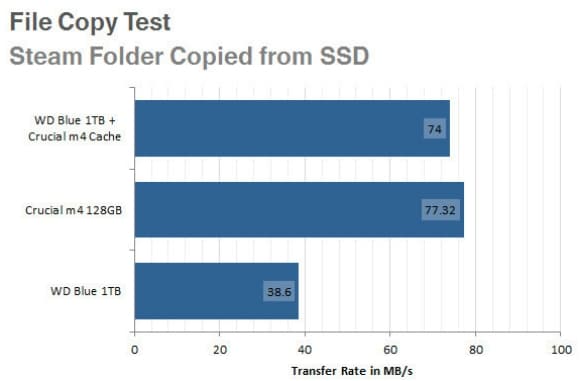

What happens if we use BOTH PrimoCache and Windows Cache? I might be interested in a small PrimoCache, below the native cache (but really, what I want is a cache that grows and shrinks, and that does write-back.) I'm not too keen having to specify in advance how big the cache will be. I'd use PrimoCache almost immediately if I could tell it to do like Windows does - Grow to use all available RAM, then shrink when something needs the RAM. Also, as far as I know, you can't "set Windows' system cache to allow it to expand well past normal limits" - In Win7 at least, it will used-up ALL available RAM by default (at least it does on my 32GB system, and I haven't touched any cache parameters.) BUT, since absolutely everything in NTFS is a file, using a file cache should not be all that bad plus, if Windows does like BeOS, it can run programs directly from cache without first having to copy them somewhere else in RAM. It was, like Fanc圜ache, a sector-based cache, and I think it is a bit better than what Microsoft does, which is a FILE cache. I used to run PowerCache (I think it was called) on Amiga, and could set the number of sets and the number of lines for the cache for each disk, so I was able to optimize depending on what kind of data was on the disks, and it was quite efficient. I replied because I wish you would post numbers that compare the Windows cache VS PrimoCache, as I have been interested in PrimoCache.
FANCYCACHE SSD FULL
Primocache has a free 60-day trial license with full features so people can test it themselves.Ĭomparing speeds with PrimoCache and then without ANY cache is not very useful, especially if you tell CrystalDisk to use a tiny 500MB file.
FANCYCACHE SSD SOFTWARE
Certainly the Windows cache wouldn't have much of an impact once you start scaling the test over 1GB.įeel free to run the test yourself, with whatever benchmark software you want. And since Windows' cache isn't all that aggressive (nor does it auto-scale well), I would not expect to see any difference using a benchmark that was intended to use it. The read/write speeds for both tests are exactly where I'd expect to see them. It shows a ridiculous increase in speed, as you'd expect. I ran a similar test with Anvil Pro, despite it being geared more against SSD testing (which really is how you should benchmark Primocache). But for writes, most recently accessed files and frequent files, it's quite effective. The only caveat in the case of using it with a Drivepool, is that usually pool drives are very large, so you need a lot of RAM to get even a small hitrate on the cache. And it's one I highly recommend (I run it on all my workstations, laptops, and server). I didn't really do it to compare speeds, but rather to show that a popular, robust, and established caching program works with DrivePool. If anyone else would like to give it a spin, Primocache has a 60-day trial on their software. I honestly wasn't certain if this was going to work when I started thinking about it, but I'm very pleased with the results. I can also verify this setup works well with SnapRAID, especially if you also cache the Parity drive(s). Network speeds are of course, still limited by bandwidth, but any local pool operations will run much, much faster. It would even work well with the SSD Cache feature in DrivePool - simply cache the SSD with Primocache, and boost read (and write if you use a UPS) speeds. For anyone looking to speed up their pool, Primocache is a viable and effective means of doing so. Here are the raw tests on the Drivepool volume, without any caching going on yet:Īfter configuring and enabling a sizable Level-1 read/write cache in Primocache on the actual drives (Z: Y: and X:), I re-ran the test on the DrivePool volume and got these results:Īs you can see, not only do both pieces of software work well with each other, the speed increase on all DrivePool operations (the D: in the benchmarks was my DrivePool letter) was vastly greater. This pool uses a simple configuration: 3 WD 4TB Reds with 64KB block size (both volume and DrivePool). Pleasantly, I found there was a huge increase in pool drive throughput using Primocache and a good sized Level-1 RAM cache.

I recently found out these two products were compatible, so I wanted to check performance characteristics of a pool with a cache assigned to it's underlying drives.


 0 kommentar(er)
0 kommentar(er)
